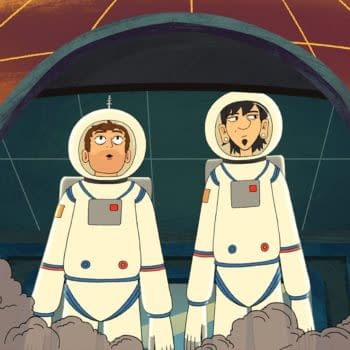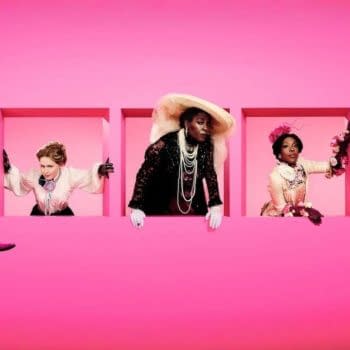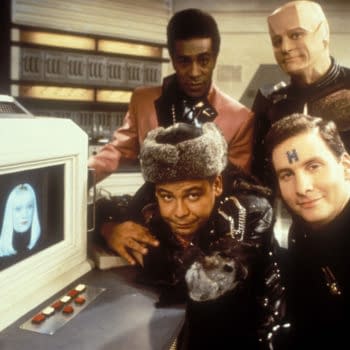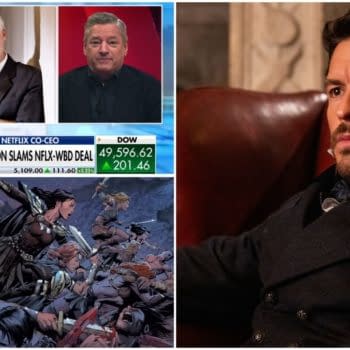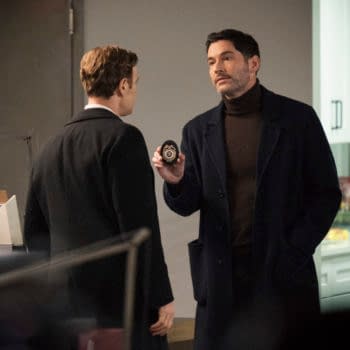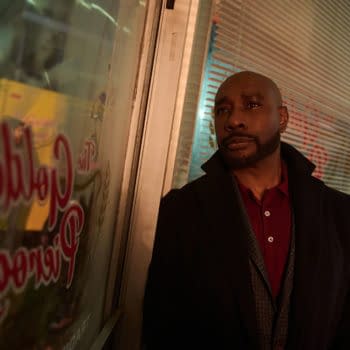Posted in: HBO, Opinion, TV, TV | Tagged: anime, Ann Skelly, bleeding cool, cable, feminism, HBO, joss whedon, laura donnelly, opinion, Pip Torrens, steampunk, streaming, television, the nevers, Tokyo ESP, tv
The Nevers Opener Was Like Tossing a Mass of Tropes Into a Blender
HBO's The Nevers is an undercooked show that's overstuffed, cobbled together with derivatives and tropes to form a mish-mash of images and actions. Joss Whedon, after all, is responsible for creating the Strong Female Heroine archetype for television and many of the clichés and conventions that now dominate female-centred genre storytelling in books, movies, and TV.
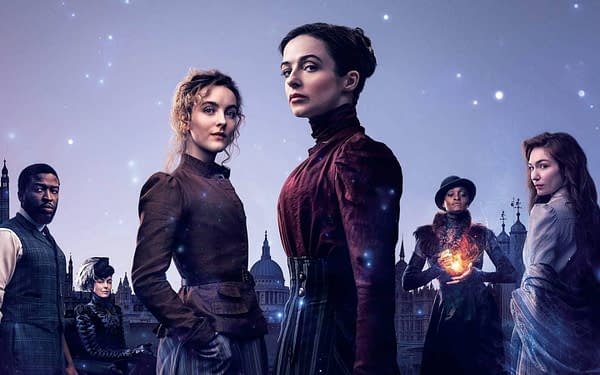
Here are what we saw in The Nevers pilot:
Steampunk Feminism
The Nevers declares itself a Steampunk feminist fantasy where the heroines can fight, talk back to the patriarchy in ways that real-life Victorian women could never do It's an X-Men riff with a mentor in a wheelchair and a school, in this case, an orphanage for girls and boys with powers.
And in Steampunk feminist tales, the Patriarchy is oppressive above and below. Lord Mussen (Pip Torrens) is the representative of the British Empire in its repressive, xenophobic glory. The men of the Establishment underestimate and condescend to the women. Libertine aristocrat Hugo Swann (James Norton) seeks to exploit the Touched sexually for profit and power.
"Strong Female Protagonist"
Amalia True (Laura Donnelly) as angry, angst-ridden, hard-drinking, ass-kicking heroine that male "feminist ally" writers love to write. (See also the works of Greg Rucka). The publicity describes her as "The most irresponsible, spontaneous, and psychologically broken hero of 19th-century London, and a danger to the British elite. She is dedicated to her cause and never turns down a drink." Penance (Ann Skelly) is another Willow: the geeky, earnest, cerebral best friend to the brawny heroine. It's a hallmark of a male writer to have the heroine fight in her bloomers after getting her dress ripped off in a scene oozing with the male gaze.
Maladie (Amy Manson) is an obvious rip-off of Alice from Batwoman. And Alice was Batwoman's Joker to start with. She's mad and murderous with a method to her madness. The way she's scripted and performed is very clearly inspired by Rachel Skarsten's performance of Alice in Batwoman.
Primrose the giant girl (Anna Devlin) is Whedon ripping off himself again – it was a plotline in "Season 8" of Buffy, the Dark Horse comic book series from years back. In those issues, a running subplot as Dawn becomes big while everyone looking for a way to undo that. Of course, Dennis O'Hare shows up as a campy sadistic scientist who cuts up people with glee. He's the go-to for campy, monstrous villainy these days.
The Nevers Lifts Way too Much from Tokyo ESP
The Nevers is a Steampunk riff of Tokyo ESP. The reveal of a glowing fish-like alien that dropped glowing balls that gave the Touched their powers is totally lifted from the manga and anime series Tokyo ESP. You can even see this in the teaser trailer for the anime. Tokyo ESP featured mysterious ethereal glowing alien fish that showed up from the sky and infected people, giving them superpowers and causing upheaval in Japanese society. People with powers are discriminated against, and some of them become bad guys. The giant translucent fish-like spaceship that shows up over Victorian London to release glowing spores that infected women, people of colour, and men who were considered outsiders to give them superpowers is nearly identical. Even the fights and action scenes in The Nevers pilot visually reference those in Tokyo ESP.
This is not the first time Whedon "lifted" from an anime without acknowledging it. Firefly took some elements from a 1990s space opera anime series called Outlaw Star. However, The Nevers takes its entire basic premise and even visual gimmicks so directly from Tokyo ESP without acknowledging it or admitting it is, while typical of Hollywood, not an ethical tact here. Now that The Nevers has proven a hit out the gate and Whedon has left the show, it is no longer his but the cast's, and the new showrunner's, and the fans'. It should be interesting to see what shape and tone the show takes without his male gaze.



